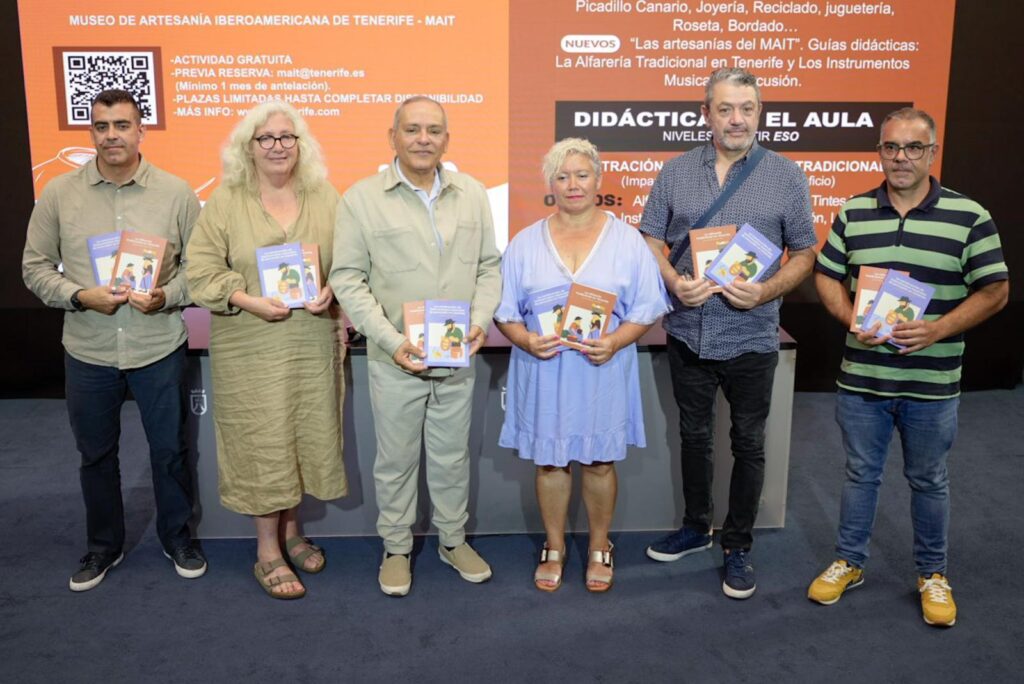
SANTA CRUZ DE TENERIFE, January 18 (EUROPA PRESS) –
This Thursday, the Government of the Canary Islands resumed the ‘Grow Together’ project, which aims to increase the penetration of local products in the hospitality and tourism sectors of the islands with the signing of a new agreement to which nearly twenty organizations have joined. among which the incorporation of the two public universities and the industrial employers’ association (Asinca) stands out.
The president, Fernando Clavijo, has highlighted the “new impetus” that the regional government and the sectors involved give to this collaboration program, to ensure that tourism “pulls the rest of the strategic sectors of the Canary Islands.”
He recalled that the “pairing” between tourism and Canarian producers brings “added value and diversification” to the Canary Islands economy, a communion in ‘Grow Together’ to which the agri-food industry and the public universities of the islands are now joining.
The vice president and Minister of Economy, Manuel Domínguez, has pointed out the importance of the industry being incorporated into this program as one of the key “wagons” of the train of the Canary Islands economy that has to “pull tourism as the driving force.”
The Minister of Tourism and Employment, Jessica De León, has highlighted the benefits that this three-way alliance brings to the tourism sector since the more than 16 million tourists who visit the Canary Islands “demand more and more local products”, with local gastronomy being the fifth motivation of the visitors that the archipelago receives.
In fact, 26% of tourists dedicate part of their spending at their destination to the consumption and purchase of local products.
For his part, the Minister of Agriculture, Livestock, Fisheries and Food Sovereignty, Narvay Quintero, has taken the opportunity to highlight the benefits that this program obtained in its first years of life.
Quintero explained that from 2016 to 2019, the year in which ‘Crecer Juntos’ entered a “desert journey”, seven hotel chains signed agreements with local suppliers, while producers in the primary sector “grew” thanks to the push of the sector. of the restaurant that bets “strongly” on local products.
The president of Asaga, Ángela Delgado, has indicated that the primary sector “is the basis of all sectors” for which she demanded “recognition” although there are others in which “more money is earned.”
“END THE POSTURE”, WARN FROM ASAGA
He has valued that local products are “tastier” and provide “differentiation” to the tourism sector and has asked public administrations to “end the posturing” and to give priority in health or education contests and contracts to companies that prioritize product of the islands.
The rector of the University of La Laguna (ULL), Francisco García, has highlighted the “added value” generated by the commitment to local products and the “kilometer zero” and pointed out the value that tourism represents because “there is no need to export nothing” since tourists come to the islands to consume.
The president of Ashotel, Jorge Marichal, has commented that linking the primary sector with tourism is the result of applying “natural intelligence” because tourists look for “differentiated products.” “This is the ‘abc’ of what we have to do,” he noted.
He has also asked the ULL to analyze the “degree of penetration” of island products in hotels and to work, through GMR Canarias, to facilitate marketing and security of supplies.
The head of Asinca, Virgilio Correa, has shown his satisfaction for being part of the project from “minute zero” since the industry is “essential” to transform raw materials, using cheese or salads as examples.
















